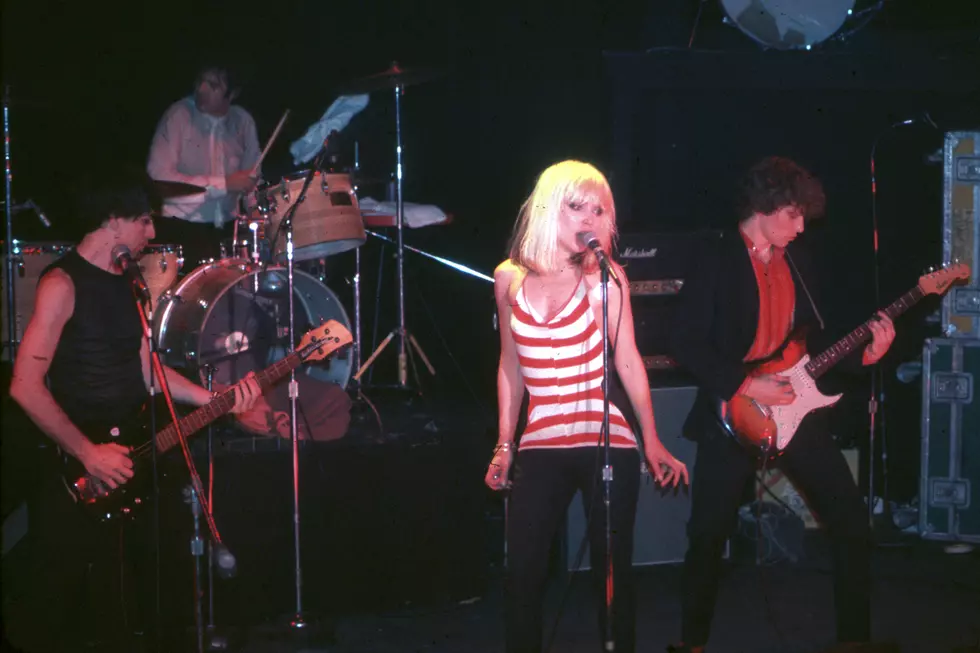
How Blondie Thrived by Making ‘Mistakes in Public’
Drummer Clem Burke says Blondie was so successful because they matured in a judgment-free workshop environment at CBGB.
The New York club became iconic for its nurturing of a wide range of groups who later found success, including the Ramones, Patti Smith, Talking Heads and Television. But Burke argues that the reality of the scene has been misunderstood.
“We were just operating in our own little bubble,” the drummer told Vinyl Writer Music. “The thing I always find very interesting is that the bands that became known as ‘CBGBs bands,’ they couldn’t have been more different from one another. So, I’m not exactly sure what the sound of CBGBs was, except that maybe we were all influenced by one another at one time or another, shared that stage, and we all essentially made our own way.
“For me, CBGBs was a workshop that basically enabled us to make our mistakes in public,” Burke added. “Very few of those moments were captured on video because, obviously, there were no cell phones with cameras and things like that. We were able to work through our original music in front of a minimal audience and get the feedback that we needed to continue. … When we would play CBGBs, maybe 100 people – that were mostly other musicians – would be in the audience.”
Burke estimated that he probably saw the Ramones 100 times between 1975 and 1976, including nights on which Blondie played alongside them. “The analogy that I always like to make … is that there was probably the same kind of thing going on at the Cavern Club in the mid-‘60s down in Liverpool [where] you had many bands playing in front of selective audiences, and a handful of those bands became these worldwide phenomena – particularly, of course, the Beatles.”
Most of the CBGB band, he said, were exploring a style of music that was “not popular at all” at the time. “It was the era of bands like Yes, Kansas, Led Zeppelin and things like that, and we were more harkening back to the music that influenced us from the start – which was from the ‘50s and ‘60s. That’s really the original sound of Blondie.”
44 Famous Records You Probably Didn't Realize Were Covers
More From KOOL 101.7










